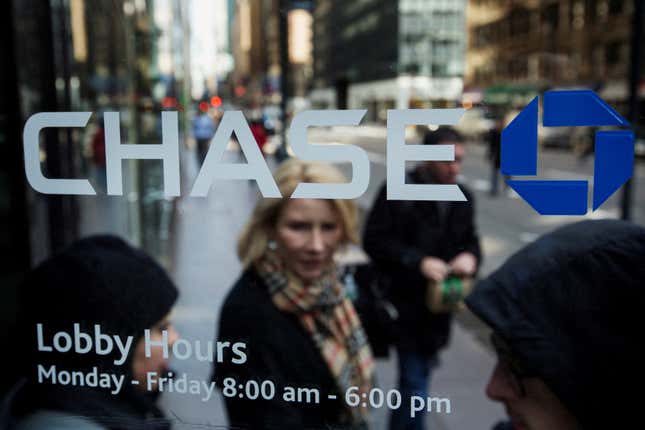
JPMorgan Chase, the largest bank in the US, is planning to open more physical bank branches and renovate existing ones over the next three years, despite falling branch traffic and the rise of online banking.
JPMorgan Chase will expand to new markets, “including low-to-moderate income and rural communities,” the bank said in a statement, while continuing to open branches in cities such as Boston and Philadelphia. The bank first announced plans to open hundreds of brick-and-mortar locations in 2018, and since then has expanded its operations by over 650 branches—400 of which are located in 25 new states, the bank said.
JPMorgan had its most profitable year ever in 2023, earning $90 billion in net interest income—or the profit on its loans—and it ended the fourth quarter with almost $4 trillion in deposits.
“Really every metric that we evaluate when we do investments, all of them are pointing in the right direction,” Jennifer Roberts, chief executive of the Chase consumer bank, told The Wall Street Journal about the expansion of its bank branches. “All of them are indicating that our investment has been a positive choice, and we are doubling down.”
Despite JPMorgan’s push to grow its physical locations, the overall banking industry has closed thousands of branches over the past 10 years as customers have turned to online banking. But banks are turning to physical locations to engage more with the communities where they are based.
“We want customers to feel welcomed when they walk through the door,” Diedra Porche, the head of Chase’s community and business development, said in a statement. “Far too often, people are intimidated when they visit a bank. Our Community Centers are specifically designed to change that. We hire locally from the community because we know sometimes it’s easier to talk to a neighbor when a customer has a problem or needs advice on buying a home, saving for college or retirement, or simply opening a checking account.”